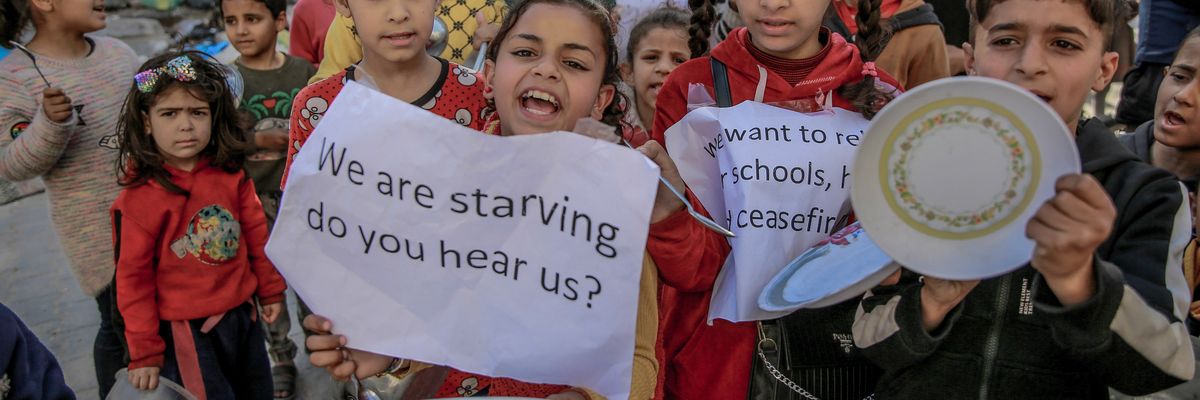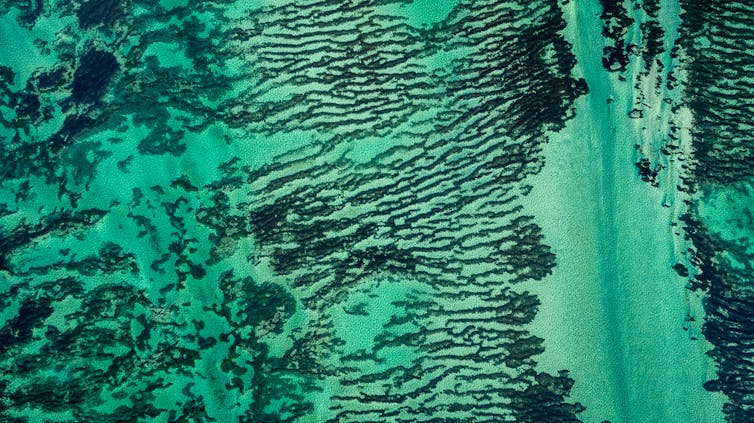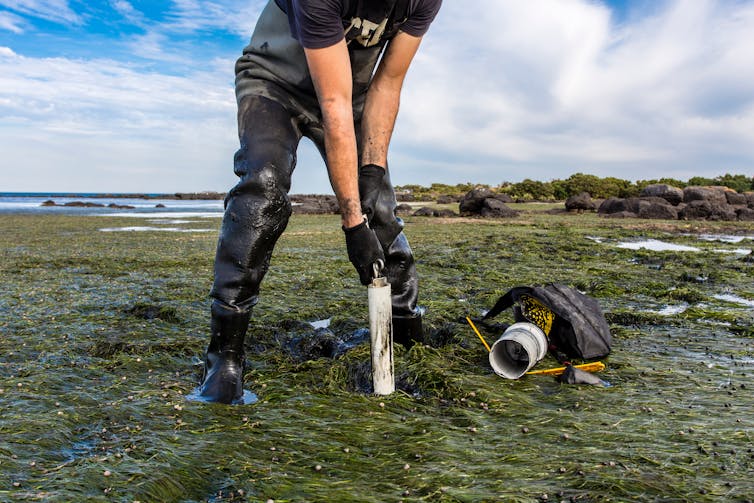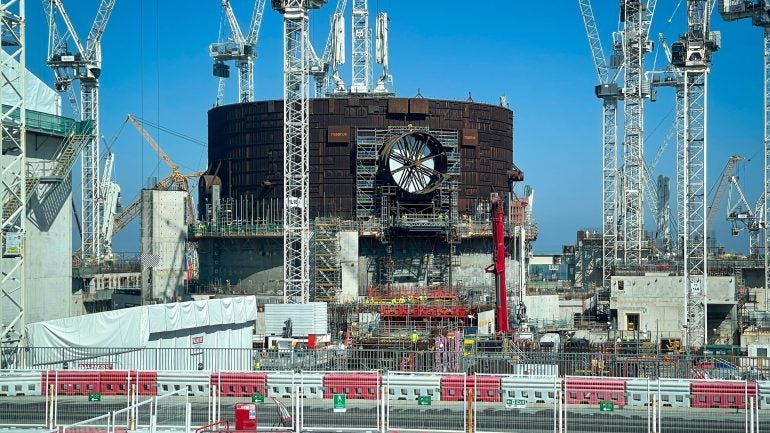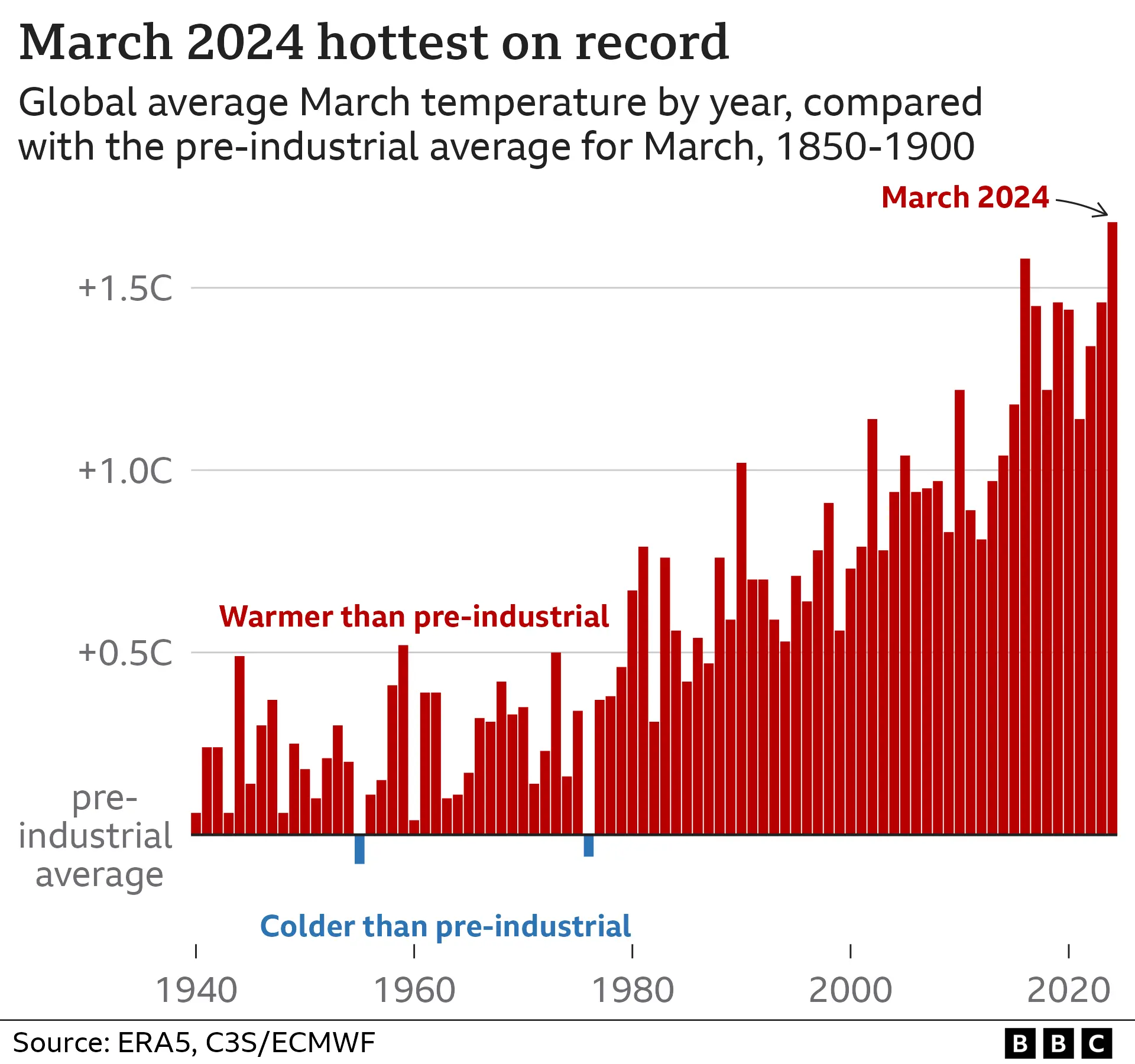Sevim Dağdelen: the double standards of the West are on full display at the ICJ
Original article by Sevim Dağdelen republished from peoples dispatch under a Creative Commons Attribution-ShareAlike 4.0 (CC BY-SA) license.
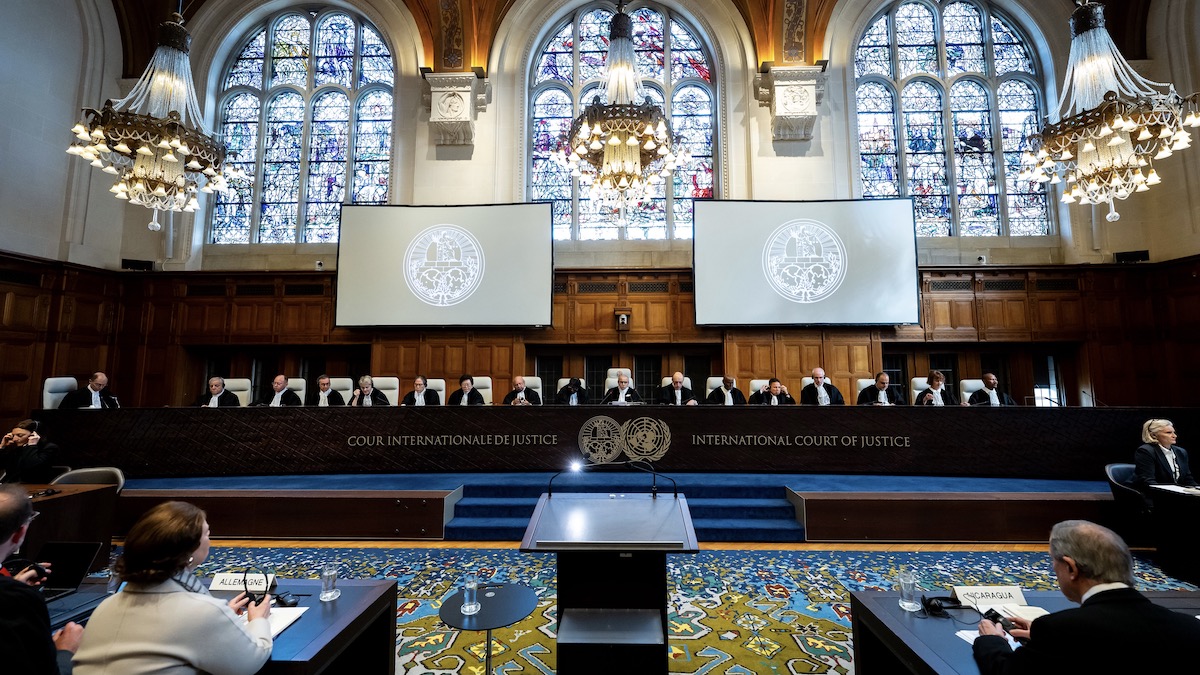
The German MP writes that the response of Germany to Nicaragua’s charges of aiding and abetting genocide in Gaza has been to downplay its role in supplying arms and question the premise that genocide is already taking place
The German government’s appearance before the International Court of Justice in the proceedings for aiding and abetting genocide and violations of international humanitarian law in Gaza is a lesson in Western double standards. On April 8 and 9, Germany sat in the dock in The Hague after Nicaragua filed a case at the highest UN judicial body.
The 43-page document accuses Germany of failing to fulfill its obligations under the Genocide Convention to prevent genocide. Essentially, Germany is accused of aiding and abetting genocide and violating international humanitarian law with its political, financial, and military support for Israel as well as by ceasing to fund the United Nations Relief and Works Agency for Palestine Refugees (UNRWA). In view of the urgency of the situation, Nicaragua requested five interim measures to prevent the facilitation of genocide. These include the demand that Germany stop supplying arms to Israel and resume payments to UNRWA to ensure sufficient humanitarian aid for the Palestinian population.
Does arming a state committing genocide make you an accomplice?
The arguments put forward by the German government in its defense were unconvincing. With a flood of PowerPoint slides, the German representation initially tried to play down the significance of Germany’s arms deliveries to Israel. It argued that the majority of the arms export licenses issued after October 7 were for so-called “other military equipment” (“sonstige Rüstungsgüter”) and only a relatively small proportion for so-called “weapons of war” (“Kriegswaffen”). This was an attempt to deceive the court and the public. For what the German defense failed to mention was the fact that this invented distinction between “other military equipment” and “weapons of war” is a specific feature of German arms export control. Contrary to what the terminology suggests, the category of “other military equipment” can also include weapons that can be used for warfare.
Germany is Israel’s second largest arms supplier after the USA. According to data from the Stockholm International Peace Research Institute (SIPRI), German weapons have accounted for 30% of Israeli arms imports in the last five years. Licenses for new arms exports also increased in 2023. In total, the German government approved the export of weapons to Israel worth EUR 326.5 million – a tenfold increase compared to the previous year. These licenses, most of which were issued after October 7, 2023, include war weapons worth 20 million euros. While the German government tried to justify the approval of 500,000 rounds of ammunition for machine guns with the difficult-to-verify claim that they had been supplied for training purposes, it could not deny the possible use of the approved 3,000 portable anti-tank weapons in war.
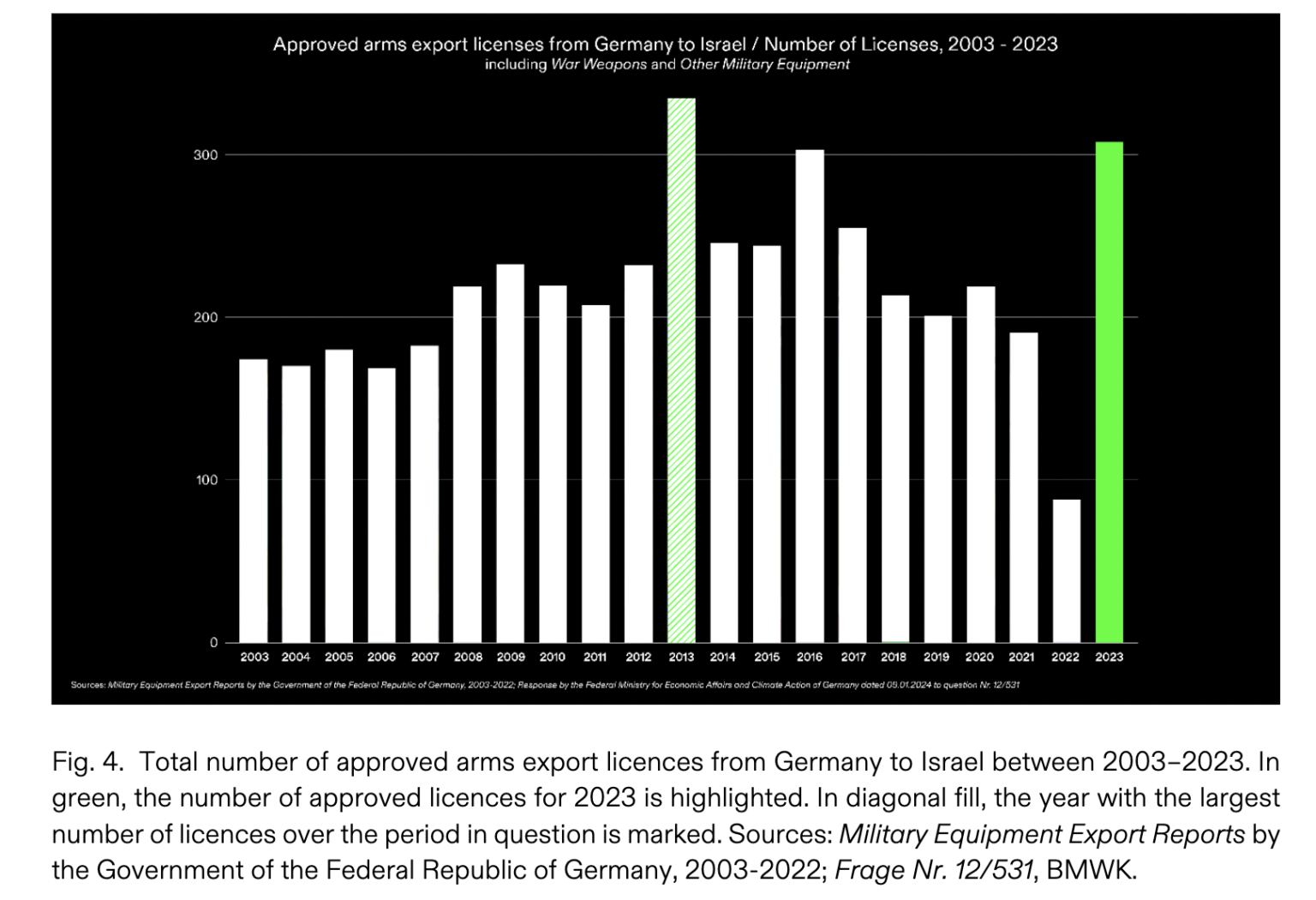
Instead, the German government attempted to justify this by arguing that these and the majority of other export licenses had been issued in October 2023, before the war and the humanitarian catastrophe in Gaza had come to a head. This argument ignores the fact that it must have been clear to the world public – and therefore also to the German government – just a few days after October 7 that the partially far-right Israeli government under Prime Minister Netanyahu would use the horrific attack by Hamas as an opportunity to wage a ruthless war against the Palestinian civilian population, committing numerous war crimes that go far beyond any right to self-defense.
It’s not genocide, yet
It was striking that the German government did not even attempt to dispute Nicaragua’s presentation of facts about the extensive violations of international humanitarian law by Israel. Apparently, it also realized that the terrible humanitarian catastrophe caused by Israel’s war, which has killed more than 33,000 people, including more than 13,000 children, can hardly be denied.
The German defense therefore focused on the formalistic argument that the existence of genocide had not yet been established and that Germany could therefore not be found guilty of aiding and abetting genocide. In doing so, however, the German government fails to recognize the central obligation under international law that arises from the Genocide Convention – namely to prevent genocide. This is all the more significant as the ICJ issued protection orders in the case of South Africa against Israel in order to prevent the danger of genocide, which the court considered plausible. Even Israel’s blatant disregard of these orders to protect the Palestinian civilian population has not led to the German government abandoning its unconditional support for Israel.
This shows the absurdity and hypocrisy of the actions of the German government as well as the governments of numerous other NATO states: On the one hand, they ignore all the findings of the most important bodies of the United Nations about Israel’s most serious war crimes and the danger of genocide and, regardless of this, continue to provide unconditional support for Israel’s war. On the other hand, the German government and other Western donor states decided to stop funding UNRWA solely on the basis of unverifiable insinuations by the Israeli government about the alleged involvement of individual UNRWA employees in the Hamas attack on October 7, 2023. The requirements for subjecting 2.2 million people in the Gaza Strip, who depend on UNRWA aid for their daily survival, to collective punishment are apparently lower than for stopping the supply of weapons that could be used to commit genocide. This can hardly be surpassed in terms of cynicism.
Against this backdrop, the German government’s attempt to defend itself before the ICJ by claiming that it had warned Israel of a military offensive on Rafah is hardly credible. In this sense, the German Foreign Minister Annalena Baerbock boasted to the German Parliament just a few days ago that she had already traveled to the region seven times and called on the Israeli government to respect the humanitarian needs of the Palestinian civilian population.
I asked the Federal Foreign Minister in the plenary session of the German Bundestag whether the Federal Government would consequently now declare a ceasefire on Israel, as the UN Human Rights Council recently called for in a resolution, due to Israel’s blatant disregard for these calls and in view of the announcement of a ground offensive in Rafah and the bloodbath to be expected as a result. The German government representative’s verbose answer can be summarized in one word: No.
Like the Foreign Minister, the German legal representation in The Hague gave the impression that the German raison d’état of unconditionally defending Israel was above international law. Threats from Berlin against the most important judicial body of the United Nations that it would no longer be credible if it ruled against Germany fit into this picture. If the German government only accepts international law when it appears to be advantageous for its own government action, it has finally reached the level of the leading NATO member, the US, which has long understood international law only as an instrument of interest-driven politics.
Regardless of how the court decides, Germany and the West must finally fulfill their obligation to prevent genocide and war crimes in order to lend weight to the demand for an immediate ceasefire in Gaza. The consequences of Western double standards, which seem to have reached a temporary climax in the Gaza war, are fatal. Not only does it lead to the West losing its last remnants of credibility in the eyes of the world. Above all, it promotes the erosion of international law, diplomacy and the United Nations as civilizational achievements for the protection of human life and the preservation of peace.
Sevim Dağdelen is a member of the German Bundestag and foreign policy spokesperson for the group “Alliance Sahra Wagenknecht”. She was the only parliamentary observer at the hearings in Nicaragua’s lawsuit against Germany before the ICJ.
Original article by Sevim Dağdelen republished from peoples dispatch under a Creative Commons Attribution-ShareAlike 4.0 (CC BY-SA) license.
